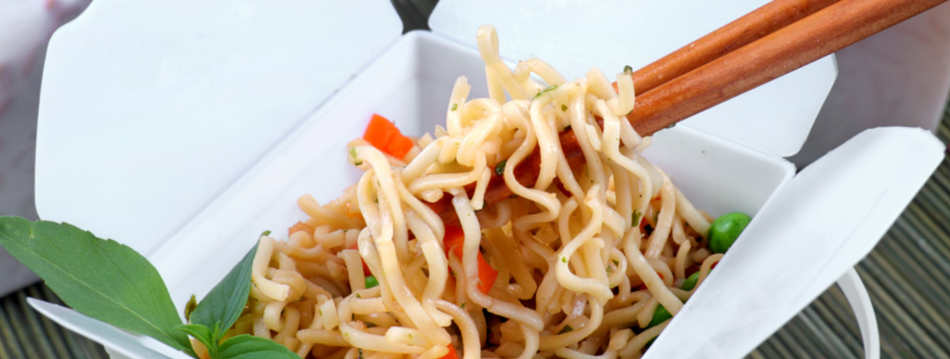.jpg)
https://en.wikipedia.org/wiki/General_Theological_Seminary
My first job after graduating from culinary school was feeding the (future) clergy at The General Theological Seminary of the Episcopal Church (as it is formally known). GTS (as it is otherwise known) takes up a full square block of Manhattan real estate in Chelsea. It is a beautiful place, and if you get a chance you should visit, while you still can. The close (which is what the enclosed community is called) has gardens and benches and beautiful Gothic architecture. You’ve likely seen it in movies or shows filmed in New York without even knowing it.
It sounded like a great job; working for spiritual people. I assumed they’d be kind and welcoming, and though many of them were, I got quite an education there about the clergy, their humanity and my own humility. I can’t imagine what it feels like to believe that God has tapped you on the shoulder, or heart and said “Please, come work for me.” I think it must make you feel pretty special.
All of the students were adults who already had undergraduate degrees, and were there to get masters and PhDs in divinity. Many had left successful, professional careers to follow their calling, bringing their families with them to live in New York City. Anyone living on the close was required to participate in the dining plan. I understood that many of the students resented having to eat in a school refectory (as lovely as it was) and go through a line to get food not of their choosing. They wanted their own food cooked the way they wanted it, in their house. This was a sacrifice that for some seemed too great to endure without complaint.
Some of them were so rude, dismissive and unkind to me and my staff I often wondered if they’d really thought about the service aspect of their calling, or understood that our calling was one of service as well. To many of the students we were ‘the help’ and were treated as such. I once had a student publicly yell at me because she felt the lunch I was serving wasn’t good enough for the board of directors who were guests that day; I had run the planned menu by my contact in the administration for just that reason, and she had instructed me not to make any changes or special provisions for the board. When the cost of cranberry juice skyrocketed we switched to different type of juice and there was nearly a riot as one student stood up on her chair screaming that she was entitled to cranberry juice, and her supporters started yelling and stamping their feet in support. This attitude of entitlement ran through the school like a virus through a day-care center, all the way to the dean’s office.
We did a lot of catering and private parties for the dean and more specifically his wife. They had a beautiful house at the front of the close, and her lavish parties were something we were able to charge extra for, enabling me to subsidize the tight budget for the students’ meals. Liz would summon me to her kitchen where we’d discuss the upcoming event, and plan the menu. One day she pulled out a Gourmet Magazine to show me a Valentine’s Day dinner for two, asking me to make it for 25. Each item was incredibly labor intense and not practical for a dinner for 25 without a full staff of servants. I managed to negotiate the menu to a more manageable one, but Liz remained steadfast in her desire to impress, and costs be damned.
I once told my boss she would have made a good queen (as in Elizabeth, not RuPaul). One Saturday I stopped by the close to pick something up and Liz spied me walking by, she called to me “Oh, Nancy, I have some chairs I need moved, can you come take care of that?” “I’m not working today Liz, why don’t you call someone from the maintenance staff?” I replied. “Oh, I didn’t realize you had days off.” Ah, royalty.
I catered events for the likes of The Archbishop of Canterbury and Desmond Tutu. I worked my ass off as I never have at any other job, sometimes working 21 days straight as the seminary hosted events that required catered food through the weekends. (Maybe Liz wasn’t so far off.) I negotiated up and down crazy stairways, and hidden halls with carts, trays and platters of food. I carried a key ring that rivalled Schneider’s (One Day at a Time).
My two years at GTS serving the clergy were educational. Until my time there I had pretty much lumped most non-Catholic, Christian sects together and had no idea that there were any significant differences between them. I had ideas in my head about the clergy personifying goodness. I did know some amazing people I would characterize as good and who met my broad idea of Godliness, but there were many occasions I wanted to ask “Have you thought about your chosen profession?” I also learned one of the great lessons of my life, that the clergy have all the idiosyncrasies and personality defects as the rest of us mortals. Feeding the clergy tested, infuriated, gratified and humbled me.






.jpg)





Cathy Goodwin - Recently met someone who cooks for some Jesuit priests. She volunteered for an event and her food was so good, she was invited to work for them. She loves the work and they’re very, very appreciative!
This is a great angle on cooking because you show that people who cook play important but usually invisible roles. Have you seen the wonderful series The Duchess of Duke Street? Old but good.
Peggy Gilbey McMackin - Hi Nancy. Insightful post, admittedly not too sure I would have enjoyed that position. I’m pretty sure no one in this life is perfect, no matter what the chosen path or calling.